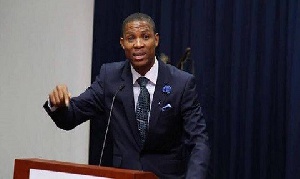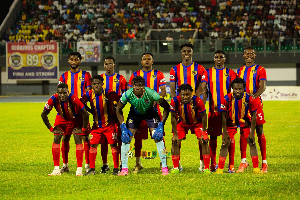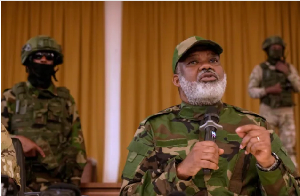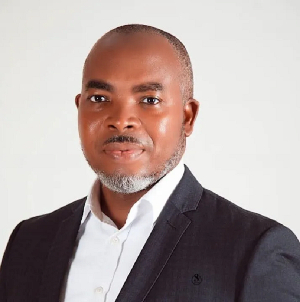Renowned Human Rights Lawyer, Francis-Xavier Sosu has predicted Ghana will experience untold violence, discomfort, and chaotic events soon if the government fails to protect the basic human rights of its citizens.
According to him, the government's consistent silence on issues that bothers human rights has infuriated a lot of people.
“The governments’ consistent silence on issues that bothers human rights has infuriated a lot of people and a typical example is the Ayawaso case. The recommendations are out yet the government has gone silent on it talk less of Manasseh Azuri fleeing his own country just because he released a documentary. These among others has infuriated the ordinary Ghanaians."
"I'm afraid an untold violence, discomfort, problems, and chaos will hit the country unless the government takes swift action against issues that bother human rights.”
Speaking in an exclusive interview with Ghanaweb's Ezekiel Fiifi Koomson, Lawyer Sosu, added that the situation if not handled carefully, pushes citizens to exercise their rights of disobedience.
“Citizens get to a point where they exercise the rights of disobedience. And instances such as the lynching of the military man, trotro driver beating a policeman and many others are visible signs of the breakdown of law and order and I can tell you that when citizens feel they are no longer protected it becomes a threat to national security which are all linked to the fundamental human right.”
Meanwhile, Lawyer Sosu has advised Ghanaian judges to be proactive whenever human rights cases appear before them, this he believes would expedite the process involved in handling human rights cases.
“I have handled a lot of human rights cases in the country and one thing I have noticed is that most of our judges are not bold to make the right judgment and this is very common with cases such as an individual versus the state. The judges don’t want the state to lose which is very bad and its an infringement upon the right of the individual,” he added.
About International Human Right Day
Human Rights Day is celebrated annually across the world on 10 December every year.
The date was chosen to honour the United Nations General Assembly's adoption and proclamation, on 10 December 1948, of the Universal Declaration of Human Rights (UDHR), the first global enunciation of human rights and one of the first major achievements of the new United Nations.
The formal establishment of Human Rights Day occurred at the 317th Plenary Meeting of the General Assembly on 4 December 1950, when the General Assembly declared resolution 423(V), inviting all member states and any other interested organizations to celebrate the day as they saw fit.
The day is normally marked both by high-level political conferences and meetings and by cultural events and exhibitions dealing with human rights issues.
In addition, it is traditionally on 10 December that the five-yearly United Nations Prize in the Field of Human Rights and Nobel Peace Prize are awarded. Many governmental and non-governmental organizations active in the human rights field also schedule special events to commemorate the day, as do many civil and social-cause organizations.
General News of Tuesday, 10 December 2019
Source: www.ghanaweb.com

















